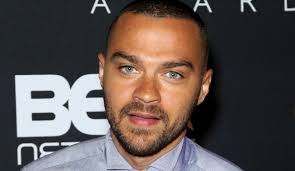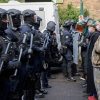By NAILA KELETA-MAE
On Sunday night, Jesse Williams delivered an acceptance speech that embodied the tone and sophistication of the black activism that’s shaping conversations about social justice in the United States of America.
Mr. Williams was the recipient of the Humanitarian Award at the annual Black Entertainment Television Award ceremony. Over the past few years, the Grey’s Anatomy actor has increasingly become known for his insightful and searing commentary in the media about the alarming trends in police violence against black people and other forms of anti-black racism.
Mr. Williams is part of a black activist movement that is underfoot in the United States. Galvanized, in large part, on social media with the founding of the hashtag #BlackLivesMatter in 2012 by black queer women Patrisse Cullors, Opal Tometi and Alicia Garza.
One of the key things that social media in general, and Twitter in particular, has made possible is a kind of loosening of tongues – a wide array of black people have come to speak about anti-black racism in public spaces with an authoritative frankness that may have surprised previous generations.
The black activism that’s bubbling to the surface now is being led by the grandchildren of the civil rights era of the ‘50s and ‘60s. And these grandchildren are armed with the knowledge of generational resistance, emboldened by the presence of a black President and equipped with a clear understanding of their entitlement.
Activists like Mr. Williams are well-educated, well-connected, and likely lawyered up. Many of them have amassed some personal wealth and are no longer merely mesmerized by money.
Instead they’re looking for something more – something akin to the dismantling of systems of oppression based on race that have persisted for centuries. That was the sentiment that Mr. Williams’ speech captured and that could be heard in his unflinching dismissal of critics of black activists’ efforts.
Mr. Williams said, “The burden of the brutalized is not to comfort the bystander. That’s not our job, all right, stop with all that. If you have a critique for the resistance, for our resistance, then you better have an established record of critique of our oppression. If you have no interest in equal rights for black people then do not make suggestions to those who do. Sit down.”
The tone of Mr. Williams’ speech moved from ceremonial to African-American Vernacular English to spoken-word poetry in an effortless display of the code-switching (the ability to switch between languages or language varieties) that has long been key to black people’s ability to survive and thrive in North America.
The sophistication of his speech lay in its serious content and authoritative delivery. His was a surmising of facts stated as he chewed gum while indicting whiteness, wealthy black Americans, Christianity and the police.
Mr. Williams said, “Now, what we’ve been doing is looking at the data and we know that police somehow manage to de-escalate, disarm and not kill white people every day. So what’s going to happen is we are going to have equal rights and justice in our own country or we will restructure their function and ours.”
What is perhaps most compelling about this 21st-century movement for justice for black people in the United States is that the public face of the activism is not a select few men. Instead there is a wide array of queer, hetero, trans and cis women and men bringing their black, feminist, queer social justice lens to their work across a breadth of industries and professions.
Naila Keleta-Mae is a professor at the University of Waterloo where she researches race, gender and performance.















